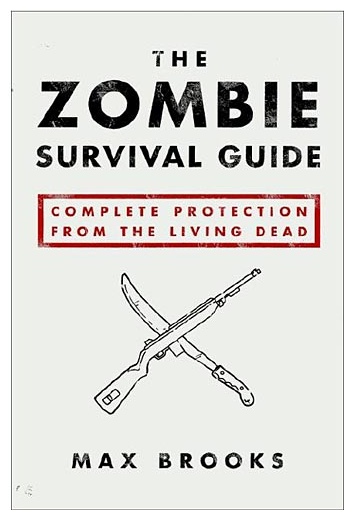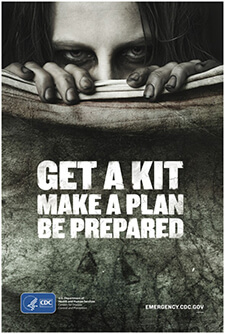Nuclear Fallout Survival: 2 Crucial Actions
The dreaded era is here. We have always predicted it. Some of us by condemnation others by threat. Did you ask how? Well, what was the point of the Treaty on the Prohibition of Nuclear Weapons passed in 2017? And aren’t 15,000 nuclear weapons in possession by 9 countries threat enough?
Brace yourself, therefore. Behold, the day of doom. Thick smoke in the air. Objects and dust flying everywhere. No sound of a mortal. Silence rules the globe. The nuclear weapons attack has become a reality.
Let’s assume for a moment that the foregoing is all fiction. But what if fiction becomes reality someday? Presume now that the nuclear attack has actually happened, and you’ve survived it. Did you prepare for the nuclear fallout survival?
You probably do not know what a nuclear threat entails, and even less the destructive power of a nuclear attack and the aftermath fallout. Behold your brief manuscript.
The Nuclear Threat: What You Need To Know
The nuclear threat is a reality. If the countries in possession of nuclear weapons will not use them for fun, they might do so for protection someday. After all, that is why they own them. What’s more, a nuclear explosion could be an accident. Japan has proved it a possibility.
Nuclear weapons are highly explosive devices. Their explosive nature is created by the combination of explosive chemicals and nuclear reactions. The weapons can be launched to the target using airplanes, missiles, submarines or from war silos. Their explosive capacity is strong enough to wipe out entire cities, killing millions and injuring equal numbers, and destroying everything on the face of the city. Further, their destructive effects on humans and the environment are long term.
Nuclear weapons have been used twice in the history of humanity. The 1945 2nd World War attack on the Japanese cities of Hiroshima and Nagasaki by the US. Since then, thousands of nuclear tests have been done. Which again makes real the threat of a nuclear attack. The effects of the radioactivity from the 1945 nuclear attack is still being felt.
The aforementioned Treaty on the Prohibition of Nuclear Weapons reinforces the 1970 Treaty on the Nonproliferation of Nuclear Weapons. The treaty commits nations to stop the spread of nuclear weapons: countries with nuclear weapons should disarm, those without should refrain from acquiring them, while all nations should positively use nuclear power. But as earlier mentioned, several countries are still in possession of nuclear weapons in the name of protecting their citizens. Paradoxically, should the weapons be launched, the protected citizens could be victims of nuclear power destruction or fallout, and so every human on earth. All this is enough reason to prepare for nuclear fallout survival, should you be among the lucky survivors.
Nuclear Fallout Survival Actions
Nuclear fallout specifically refers to the radioactive material launched into the atmosphere when a nuclear weapon is detonated. Depending on the intensity of the explosion, fallout may last for weeks or months, but its radioactive effects may last for years and years. The airwaves, ashes and all forms of particles transfer radioactive substances into the air and into food and water sources, risking human health and life. If you are a survivor, you need to stay away from the fallout. So what action should you take?
Survival Action 1: Leave!
If you are within the fallout radius, your best option is to leave the place and move to a location beyond the fallout. The rule of the thumb will help you determine whether you are within the fallout radius. Once you see the mushroom cloud from a distance, place your thumb in front of your eye. If you see the cloud, then it means you are within the fallout radius and should move away before 15 minutes are over. Radioactive material travels fast and will soon put you at risk of acute radiation sickness or radiation burns, altogether threatening your life.
With air, water, and food poisoned, it is impossible to survive in a fallout region. For instance, water will not only be poisonous when ingested but also if used on the skin. History suggests that moving out of the fallout radius should be safe enough. That you are not experiencing radioactive burns is reason for hope but should not make you too comfortable to wait for other minor effects from the radioactive material. In sum, the further you move from the explosion point, the safer you are.
If you are within the fallout radius but cannot move to safety in 15 minutes, stay where you are and seal off any doors and windows. Wash body parts you suspect may have been exposed to radioactive material. Try moving to safety in an hour when the fallout has subsided.
Leaving is an option if the nuclear explosion is localized. But evacuation will not save you if we are facing a global nuclear attack. You need a different tactic; prepare in advance for nuclear fallout survival.
Survival Action 2: Construct a Fallout Shelter
The purpose of constructing a nuclear fallout shelter is to shield you from the radioactive material and to store the food, water, and energy supplies for survival while the radiation subsides. Hence, the shelter should be completely sealed off the outside.
In a nutshell, the most effective nuclear fallout shelter should be built in a basement or underground. Even if it is constructed in the open, the basic condition is that it is made of material that is dense enough to keep off the radiation. For example, you may opt to make a double wall with concrete blocks with no doors, windows or other ventilation. The inside walls may be lined with dense metals that can block radioactivity such as tungsten and lead. But these could also be poisonous in their turn.
Installing an internal oxygen supply system in a fallout shelter and stocking it with enough food and water is crucial. Overlooking this detail would mean escaping death from nuclear radiation but meeting it by suffocation or starvation.
Will You Survive?
Whether you evacuate from a nuclear explosion location to get away from fallout or retreat into a previously constructed fallout shelter, the dire situation of a nuclear explosion is life threatening for anyone within or close to the detonation spot. The probability of surviving is unclear since critics will argue that the air that should keep you breathing in a shelter would easily be contaminated and that while moving away, you cannot be exact in predicting the exact miles of the fallout radius. Consider that evacuation by faster means like an airplane is stalled indefinitely.
Bottom line, the best option for surviving nuclear radiation is avoiding a nuclear explosion altogether. And that is a common responsibility of the global community.



